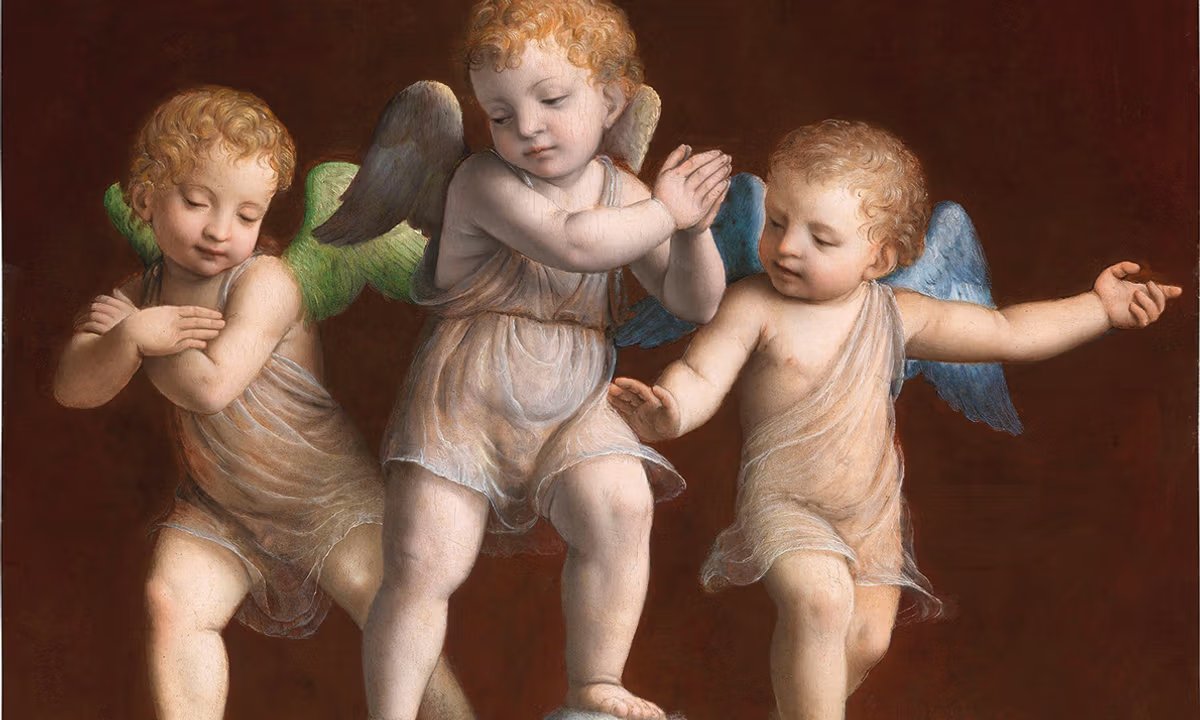A “confronting” drawing depicting a soldier being subjected to a graphic sexualised hazing ritual has caused a stir online after being uploaded to the Australian War Memorial website.
The AWM on Monday revealed the finalists for the 2024 Napier Waller Art Prize, a biennial competition open to current and former Australian Defence Force (ADF) members which “aims to promote artistic excellence” among service personnel “while encouraging them to record their diverse experiences”.
One of the 17 short-listed entries, ‘The impossible sit-up challenge’ by Steven Bostock (Bloor), depicts a soldier lying on the ground being blindfolded while another, fully naked soldier, squats over his face.
The pencil and pen drawing is covered by a warning on the AWM website which reads, “This work of art includes confronting content which some people may find challenging and disturbing. Viewer discretion is recommended.”
The artist’s description reads, “Five soldiers from the 5th Battalion in the Royal Australian Regiment participate in a well known prank on exercise in Cultana training area, South Australia c. 2007. The prank involves convincing a soldier there is an impossible sit-up challenge that is yet to be conquered. Ego in check, the soldier lays down and attempts to do a sit-up blindfolded. The illustration highlights the blurry line of camaraderie and the abuse culture, which exist in the army.”
The 17 short-listed entries are being exhibited at Parliament House in Canberra until October 13.
The winner will be selected by a panel of art experts and professionals and announced on May 29.
“The winning artist will receive a $15,000 cash prize and their prize-winning entry will be accepted into the Memorial’s National Collection,” the AWM said in a statement.
“The Napier Waller Art Prize online exhibition features 29 short-listed works, including the 17 highly commended entries. All short-listed artists are eligible for the People’s Choice Award, which has a cash prize of $5000. Voting for the People’s Choice will be conducted via the Memorial’s website from until October 13, when the exhibition closes.”
Bostock has been approached for comment.
A spokesman for the Australian War Memorial said it “takes its responsibility seriously when presenting content which is confronting, or which may cause some viewers offence”.
“The Memorial uses warnings and click-throughs to ensure audiences must opt-in to view this kind of content,” he said.
“These warnings and a click-through have been applied to entries into the 2024 Napier Waller Art Prize. It is important to note that while some artworks are confronting, many of the artists depict their own personal experiences, including negative incidents, from their service. While the Memorial accepts a responsibility to present this content with appropriate warnings, the Memorial does not seek to censor or diminish the experiences of the artists as current and former Australian Defence Force personnel.”
The well documented culture of abuse within the Australian military has contributed to a suicide crisis in recent decades, sparking the Royal Commission Into Defence and Veteran Suicide, led by Commissioner Nick Kaldas alongside Dr Peggy Brown and James Douglas KC.
Deaths by suicide have taken the lives of at least 1677 servicemen and women between 1997 and 2021 — 20 times the number of service personnel killed on active duty.
The three-year royal commission, which closed in March, is due to hand down its final report by September 9, 2024.
The commission heard harrowing testimony from former service members who suffered dramatic mistreatment as they grappled with mental health challenges during their service.
In 2022, former ADF headquarters chief of staff, Air Commodore Lara Gunn, told the commission “serious abuse suffered by ADF members”, and its mismanagement, “can be a contributing risk factor in deaths by suicide, attempted suicide and poor mental health”.
Accounts of “alarming” hazing rituals were also provided to the commission.
In one hearing, Brigadier Kahlil Fegan from Townsville’s Lavarack Barracks recalled one particularly vulgar incident that stayed with him.
“It involved absolute, unequivocally inappropriate behaviour by a small group of soldiers towards another soldier,” he told the commission in 2022.
“I was quite alarmed at that particular incident and sought to support the Commanding Officer in dealing with that matter appropriately.”
Brigadier Fegan said a group of soldiers on an exercise “chased another soldier in the bush and tried to tie him up … it was in line with some sort of stupid initiation that that particular unit had engaged in over a number of years”.
“So, it was an example of stupidity, and it was an example of behaviours that are totally unacceptable,” he said.
The details about exactly what happened in the bush were not revealed, but Brigadier Fegan said it was “not uncommon to find alcohol involved” in similar hazing and bullying incidents.
“I think there is absolutely no need for it,” he said.
“To me, it is stupid behaviour. There is no need to ostracise an individual even if they are new. And if we’ve done that sort of thing, or anything that could be perceived as that sort of thing, hazing, you know, bastardisation, this sort of stuff, it is not aligned with who we want to be as an Army, and it is not aligned with how I want our people to behave within the 3rd Brigade.”
He said a number of soldiers were charged over the incident.
— with Rohan Smith






